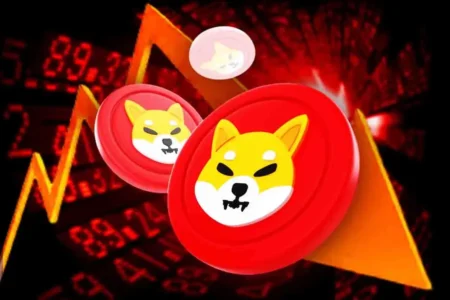Gold vs. Bitcoin: Peter Schiff’s Take on Why Central Banks Favor Gold
In the ongoing discourse surrounding Bitcoin and gold, Peter Schiff, an outspoken critic of the cryptocurrency, has reignited the debate with a recent post on social media platform X. Schiff continues to assert that gold, rooted deeply in economic history, remains the superior safe-haven asset compared to Bitcoin. His claims are buoyed by the increasing trend of global central banks shifting their reserves away from fiat currencies like the U.S. dollar and toward gold—a move he interprets as a strong endorsement of the precious metal’s enduring value.
Central Banks’ Preference for Gold
Schiff’s argument hinges on a pivotal question: If Bitcoin is the future, why are foreign central banks replacing their dollar reserves with gold instead? He highlights the paradox of central banks—institutions tasked with monetary policy—favoring gold during a time when Bitcoin is often touted as a revolutionary currency. Schiff cites the ongoing geopolitical tensions, particularly the ramifications of U.S. policies and the recent conflict in Ukraine, as key drivers for this transition. Central banks are reportedly ramping up their gold accumulations, with purchases reaching over 1,000 metric tons annually—double the previous decade’s average—indicating a strong belief in gold’s long-term stability amid economic uncertainties.
The Impact of Global Economic Conditions
Factors such as U.S. tariff policies and dollar devaluation continue to push central banks toward diversifying their reserves. Many emerging market economies currently hold about 10% of their assets in gold, according to strategist Michael Widmer of Bank of America. He advocates for an increase to 30%, suggesting that the stability of gold is increasingly recognized as vital for financial security. Meanwhile, as nations like Russia stockpile gold in response to Western sanctions, the global desire for the yellow metal appears to be on the rise. Schiff’s assertions reflect a growing sentiment that traditional assets like gold may offer security where cryptocurrencies can falter.
Bitcoin’s Volatility and Perceived Risks
Contrasting sharply with Schiff’s gold-centric perspective is the increasing interest in Bitcoin among American investors. He raises concerns over this appetite for Bitcoin, suggesting that such enthusiasm may lead to heavy losses for American holders—who own nearly half of global Bitcoin. Schiff argues that this overwhelming concentration of Bitcoin ownership may create a scenario where some individuals are cashing out at highs, leaving those who purchased during peaks to face significant declines. This inherent volatility raises questions about Bitcoin’s prediction as a safe-haven asset, especially when juxtaposed with gold’s historically steady value.
Scientific Experiments and Emerging Narratives
In the world of financial speculation, recent scientific endeavors, such as CERN’s lead-to-gold experiment, have prompted new discussions about the long-term value of gold. While some analysts, like CNBC’s Ran Neuner, predict Bitcoin will ultimately outperform gold, Schiff remains skeptical. He insists that despite innovation and upheaval, gold’s practical usability and long-standing historical significance cannot be overlooked. This dual narrative, contrasting Schiff’s trust in gold with burgeoning crypto-optimism, frames a larger discourse about the future of value storage in our rapidly changing world.
The Current Market Landscape
Market conditions reveal a complex picture, with gold recently valued at $3,357.4 per ounce. As of the latest data, it has shown slight fluctuations in value, standing at a modest increase of 1.82% for the day, while Bitcoin sits at $108,148—down 2.31% within the same timeframe but up 17% over the past month. Such dynamic changes illustrate the inherent risks and volatility in the cryptocurrency market, particularly when compared to gold’s relatively predictable performance. This ongoing uncertainty underscores Schiff’s core argument regarding the merits of holding gold in a portfolio.
Conclusion: The Future of Economic Reserves
Ultimately, the debate between gold and Bitcoin reflects broader themes of value preservation in uncertain economic times. Schiff’s perspectives provide a critical voice in the discourse, urging investors to acknowledge the storied history and reliability of gold as opposed to the speculative nature of Bitcoin. As governments and financial institutions reassess their reserve strategies amid rising global tensions, the preference for a tried-and-true asset like gold seems to resonate stronger than the allure of untested alternatives. As both traditional finance and cryptocurrency continue to evolve, the conversation around these two asset classes is likely to remain at the forefront of investment strategy discussions.
In this evolving landscape, understanding the implications of investment choices becomes crucial—an imperative to ensure one’s financial future aligns with market realities and inherent asset values.
















